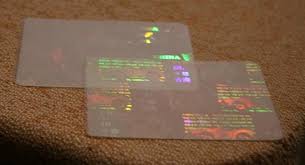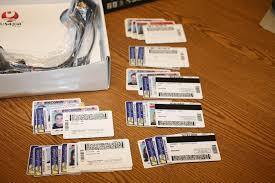Indiana driver’s license
1. Indiana Driver’s License Overview
1.1 Types of Licenses
Indiana offers several types of driver's licenses, each tailored for specific uses and applicants:
Standard Driver’s License: Designed for most adult drivers, this license allows individuals to operate personal vehicles weighing up to 8,000 pounds. Applicants must pass a written test and a driving skills test.
Commercial Driver’s License (CDL): Necessary for individuals who wish to drive large vehicles (such as trucks and buses). The application process for a CDL is more stringent, requiring higher testing standards.
Learner’s Permit: Created for individuals under 18, this permit allows young drivers to practice driving under the supervision of a qualified adult. Holders of a learner’s permit must complete a specified number of practice hours, typically 50 hours, including 10 hours of night driving.
1.2 Application Requirements
To apply for an Indiana driver’s license, applicants must meet several basic requirements:
Age Requirement: The minimum age for a standard driver’s license is 16, while applicants for a commercial license usually need to be at least 18 years old.
Proof of Identity: Applicants must provide valid identification, such as a passport, birth certificate, or other official ID.
Social Security Number (SSN): A valid SSN must be presented to ensure the legality of the applicant's identity.
Testing: All applicants must pass both a written knowledge test and a driving skills test to demonstrate their ability to drive safely.
2. Design Features
2.1 Visual Design
The design of the Indiana driver’s license is thoughtfully crafted, focusing on aesthetics and security:
State Seal: The Indiana state seal prominently appears on the license, representing the state's history and culture. The seal features symbols of freedom, such as a torch, and a warrior, reflecting Indiana's values.
Colors and Patterns: The license utilizes the state’s representative colors, like deep blue and gold, ensuring visual appeal. The background patterns are dynamic and modern, making the license easily recognizable among various identification forms.
Anti-Counterfeiting Features: The latest licenses incorporate multiple anti-counterfeiting technologies, such as watermarks, holograms, and laser engravings, significantly increasing the difficulty of forgery.
2.2 Functionality
Barcodes and Chips: Indiana driver’s licenses are embedded with barcodes and microchips that store driver information, including name, address, and driving history. This allows law enforcement to quickly verify the license's authenticity.
Transparent Window: Some new designs include a transparent window that enhances security and visual appeal. This feature can display specific information, such as the holder’s photo or signature, making it challenging to counterfeit.
3. Uses of the License
3.1 Driving Vehicles
The primary purpose of the Indiana driver’s license is to legally operate a motor vehicle. With a valid Indiana driver’s license, holders can travel freely within the state and across state lines without legal concerns. For those needing to commute frequently, the license is an indispensable tool in daily life.
3.2 Identity Verification
In many situations, the Indiana driver’s license serves as a valid form of identification. Whether opening a bank account, applying for a credit card, or obtaining insurance, the license is widely accepted. Financial institutions in Indiana often require a driver’s license as the main document for identity verification.
3.3 Age Verification
When purchasing alcohol or other restricted items, the driver’s license is the most commonly used method for age verification. Retailers typically ask for the license to ensure that the purchaser meets the legal age requirement, thereby upholding societal laws and regulations.
4. Target Audience
4.1 New Drivers
For newly licensed young adults, the Indiana driver’s license symbolizes independence and responsibility. This sense of freedom allows them to take control of their lives and build confidence as they transition into adulthood.
4.2 Students
Many students opt to obtain their licenses during their college years to facilitate commuting, socializing, and participating in campus activities. A driver’s license not only serves as a means of transportation but also enhances their independence and social opportunities.
4.3 Out-of-State Residents
For individuals moving to Indiana, obtaining an Indiana driver’s license is a crucial step in integrating into local life. This is not only a legal requirement for driving but also a significant marker of identity. New residents typically need to update their licenses to comply with Indiana's laws and regulations.
5. Real Cases and User Experiences
5.1 User Testimonials
User A: A new student shares her experience of how having a driver’s license allows her to engage in campus activities and work opportunities. She emphasizes that having a license enables her to manage her time independently, significantly enriching her college experience.
User B: An out-of-state resident discusses how acquiring an Indiana driver’s license helped him integrate into his new community. He mentions that the license gave him confidence in a new city, allowing him to participate in community events and establish social connections.
5.2 Expert Commentary
Transportation experts highlight that the design and application process of the Indiana driver’s license reflect a commitment to safety and convenience. They recommend that applicants prepare thoroughly for tests to ensure safe driving on the roads.
6. Application Process and After-Sales Service
6.1 Application Steps
Appointment: Schedule an appointment online through the BMV website to avoid long wait times.
Document Preparation: Gather necessary identification documents, proof of residency, and Social Security number. Ensure that all documents are original or verified copies.
Examinations: Complete the written and driving tests. Applicants are advised to practice through simulated driving scenarios to improve their chances of passing.
6.2 After-Sales Services
License Renewal: The validity of an Indiana driver’s license is typically four years. Upon expiration, holders must apply for renewal online or in-person, usually incurring a renewal fee.
Replacement Services: In the event of a lost or stolen license, holders should promptly report to the BMV and apply for a replacement. The replacement process is generally straightforward and similar to the initial application.
7. Psychological Value
7.1 Sense of Independence
Holding an Indiana driver’s license provides individuals with the ability to travel independently, granting them greater autonomy in their lives. This independence particularly benefits young adults, enabling them to manage their schedules and improve their quality of life.
7.2 Social Recognition
In contemporary society, possessing a driver’s license is often viewed as a marker of maturity and responsibility. It serves not only as a practical tool but also as an essential part of one’s identity, helping holders gain social recognition and build self-esteem.
8. FAQ
8.1 How do I renew my Indiana driver’s license?
- Renewal can be completed through the BMV website, requiring the current license, identification proof, and renewal fee. It is recommended to renew a few months before the license expires to avoid legal issues.
8.2 What should I do if I lose my license while out of state?
- If the license is lost, the holder should quickly contact the BMV to apply for a replacement. This can usually be done online or by visiting a BMV office.
8.3 How can I apply for a commercial driver’s license?
- The application for a commercial driver’s license requires meeting stricter conditions, including completing specific training courses and examinations. Prospective applicants should check the BMV website for the latest requirements and procedures.
Conclusion
The Indiana driver’s license is not only proof of legal driving but also an indispensable part of life for every resident. By understanding its design, uses, and target audience, we can appreciate the importance of this license in daily life. Whether you are a new driver, student, or out-of-state resident, possessing an Indiana driver’s license will undoubtedly enhance your life by providing convenience and freedom.
 New Jersey Fake ID
New Jersey Fake ID
 fake Georgia ID
fake Georgia ID
 Best fake Indiana DL
Best fake Indiana DL
 High-quality fake ID
High-quality fake ID